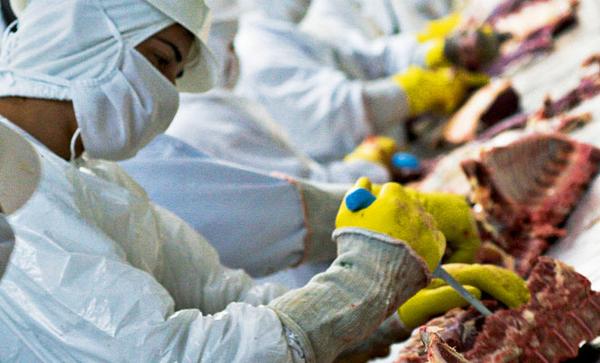São Paulo – The Middle East accounted for 27% of foreign sales by Brazilian meat packer Minerva in the 12 months through September, down from a 31% share in the 12 months through September 2017. Still, the Middle East and Asia were the leading destinations for Minerva sales from Brazil. The company is the number one beef exporting business in South America. It ships product to over 100 different countries.
Minerva subsidiary Athena Foods, which comprises operations in Paraguay, Uruguay, Argentina, Colombia and Chile, also saw sales to the Middle East lose relevance compared with overall export numbers, with the latter’s share going from 14% in the 12 months through September 2017 to 8% through September this year, a Minerva report said.
On the other hand, Minerva stepped up its exports to other markets around the world. Sales from Brazil to Asia and the American continent widened, with Asia’s share going from 23% to 27% and America’s nearly doubling from 8% to 15%. The share of Athena Foods exports taken in by Asia climbed from 22% to 33%; the Commonwealth of Independent States (former URSS) answered to 18% of total exports, up from 8% through September 2017; and the European Union’s share rose from 11% to 13%.
As a whole, Minerva’s exports increased substantially through last September, by 49.5%, from BRL 6.7 billion (USD 1.7 billion at current exchange rate) to BRL 10 billion (USD 2.6 billion). The company posted BRL 2.8 billion in foreign sales revenues during Q3, up 32.3% year-on-year and up 11.7% from Q2 this year.
Minerva slaughtered 3.4 million head of cattle in Brazil and elsewhere through last September and 902,800 head in Q3. Net revenue was BRL 15.5 billion (USD 4.1 billion) through September, up 16.8%, and BRL 2.8 billion (USD 745 million) in Q3, up 32.3% year-on-year. The company posted losses of BRL 132 million (USD 35 million) in Q3 and BRL 1.4 billion (USD 372 million) in the 12 months through September.
Minerva is a Brazilian company. Saudi Arabia’s Saudi Agriculture and Livestock Investment Company (Salic) owns a 20% stake in it.
Translated by Gabriel Pomerancblum




